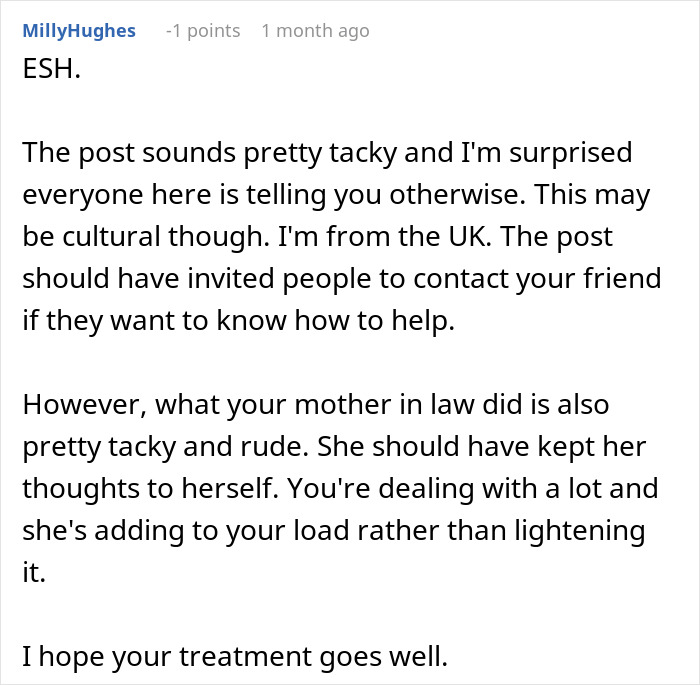A cancer diagnosis is something everyone wishes they never have to hear. This might be even more true with rare cancers. Unfortunately, according to the WHO, 25% of all cancer diagnoses nowadays are rare cancers. When you get any kind of cancer diagnosis, the best you can hope for is support and help from friends and family.
And it’s exactly what this woman had in mind when she asked for some help looking after her kids and covering the costs of her treatment trips in an online post. However, her mother-in-law thought it was “tacky” and “dramatic”, chastising her that it’s “not the family way”. Angry and confused, the woman decided to ask for opinions online.
A cancer patient asked for help from friends online, and was told it’s too ‘tacky’ and ‘dramatic’ by her MIL

Image credits: Getty Images / unsplash (not the actual photo)
The mother-in-law thought it was shameful to ask people for financial help like that
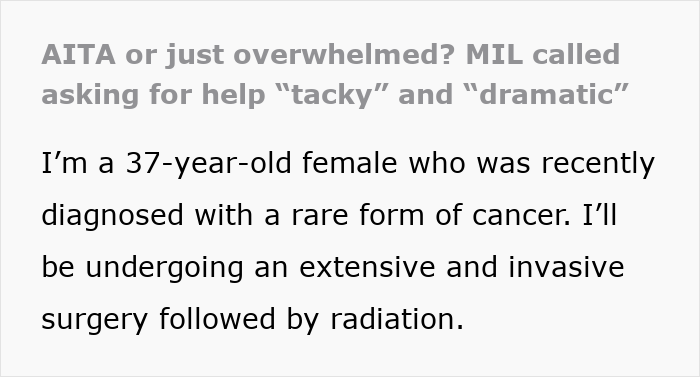
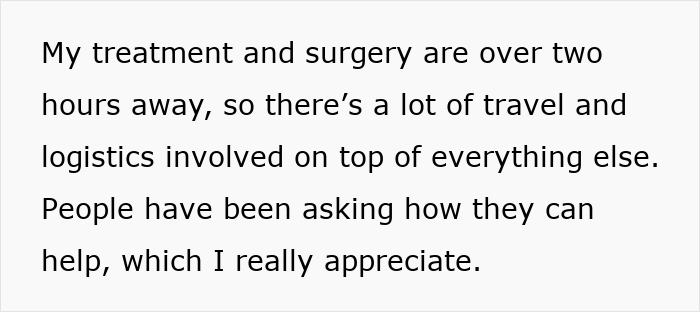
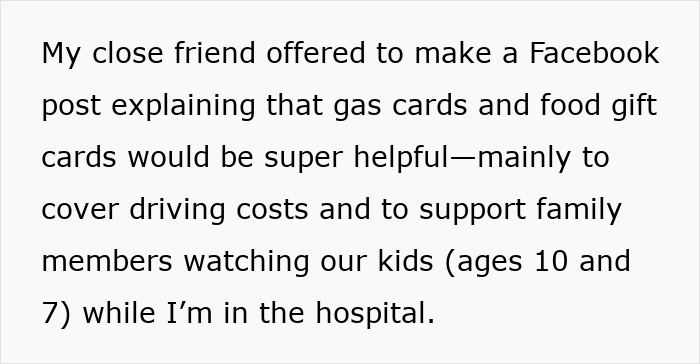

Image credits: Jan Baborák / unsplash (not the actual photo)
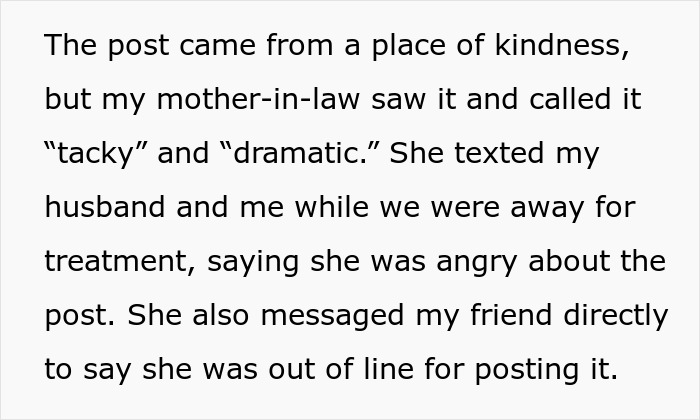
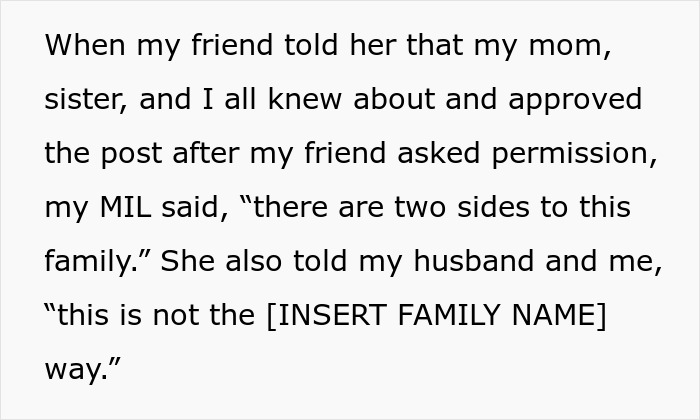
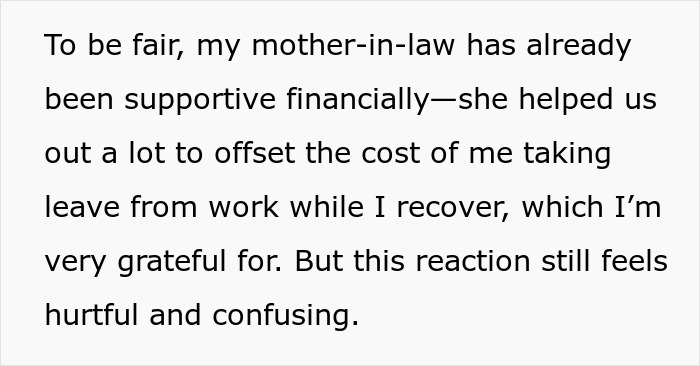

Image credits: Getty Images / unsplash (not the actual photo)
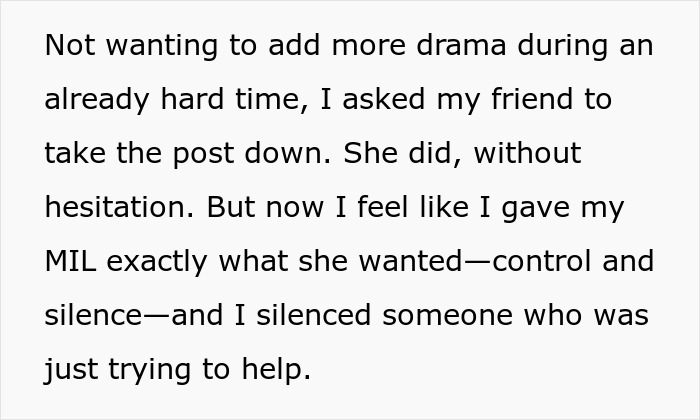


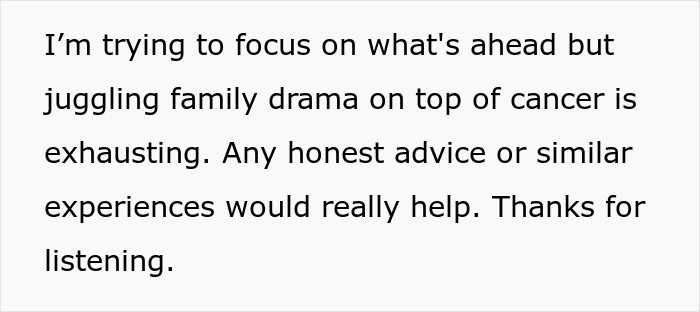
Image credits: Prestigious_Quote776
Financial costs are a big concern for a lot of cancer patients
It’s normal to seek out financial help for cancer treatment from family members and close friends. For many cancer patients, financial costs are the biggest worry throughout their journey. In fact, 40% report being financially impacted by their cancer diagnosis.
In 2024, cancer patients spent an average of $935 a year on prescription drugs alone. Younger patients are more burdened with their treatment costs. Many report borrowing money, delaying significant life events, and even seeking government assistance.
15% of cancer patients admit they had to spend their saving or retirement money to cover their treatment costs. 13% say they’ve borrowed money from family members or friends. Some cancer patients choose crowdfunding platforms for that purpose.
Yet that can often come with a sense of shame and stigma. As postdoctoral nursing student at the University of Michigan Rogel Cancer Center and a research fellow at the School of Nursing Lauren V. Ghazal, Ph.D., explains that the patient has to be vulnerable and reveal personal details about their health.
“Asking for help is difficult,” Ghazal emphasizes. “This is not something a [cancer patient] does lightly. And it’s not something that necessarily should be expected – that they immediately have to disclose their whole history on a social media site to pay their bills.”
So, saying that a cancer patient asking for help on social media is “tacky” and “dramatic” can only deepen that shame. Cancer patients most likely are not doing that just because they’re some grifters – they do genuinely need all the help and support they can get.
Any form of help lets a friend who’s dealing with cancer know that you’re thinking about them
Battling cancer on your own sounds like a near-impossible task. According to one survey, 69% of cancer patients saidthey needed psychological support, yet a third of those who needed it claimed it was “not available.”
But supporting a friend or a family member through their cancer journey can be a tricky task. What do you say? What do you better keep to yourself? How can you help without being too intrusive or, on the contrary, too dismissive?
The experts at the American Cancer Society generally suggests showing up in any form that you can. This includes:
- Texts and calls. Let your friend know that you care about them and keep up with them regularly.
- Visit them in person. Always call before coming over for a visit, but adapt to how your friend is feeling that day. If they’re low on energy, bring a crossword, a puzzle, your knitting project or etc. to just provide company and let your friend doze off. If they’re up for it, go for a walk together, watch a movie or listen to an album.
- Don’t shy away from physical touch. The folks at the American Cancer Society recommend always beginning and ending a visit with a touch, handshake, or a hug. One study shows that cancer patients rate physical touch as a tangible form of support. Many associated physical touch from the people close to them with feelings of security and protection.
- Engage in conversation. It can be hard to know what to say to a cancer patient. Sometimes, it’s best to just listen and not even respond: your friend may just want a caring listener. Knowing what not to say is more important: this includes offering medical or other unsolicited advice, telling them to “fight” the disease, don’t compare them to other patients. Also, avoid saying things like “You’re so brave” and “You’ll be fine.”
- Offer to do errands for them. These can be work projects, plans, or scheduled events. The American Cancer Society even recommends getting neighbors and other friends together to help the cancer patient with everyday tasks and errands: making lunch, cleaning their house, mowing the lawn or tending to their garden, babysitting or pet-sitting, buying groceries, and even taking their kids to after school activities.
In general, many cancer patients might feel like they’re a burden to their family and friends. So, it’s important to let them know that they’re getting support, help, and love
But most commenters sided with the patient: “She is not the arbiter of what is or is not the way”
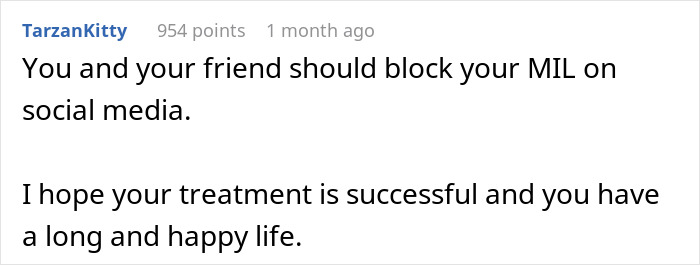
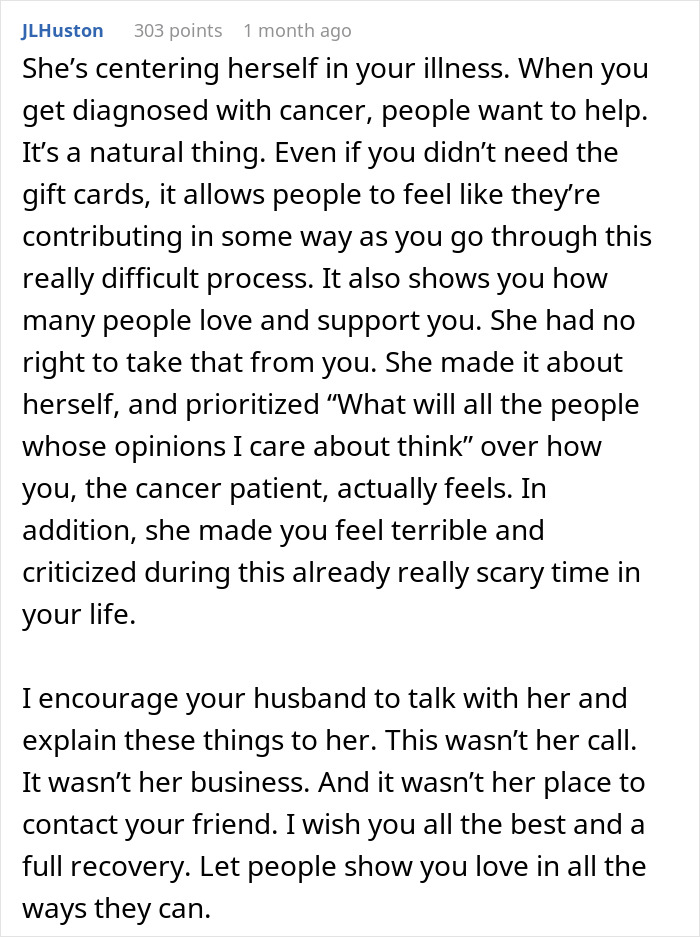

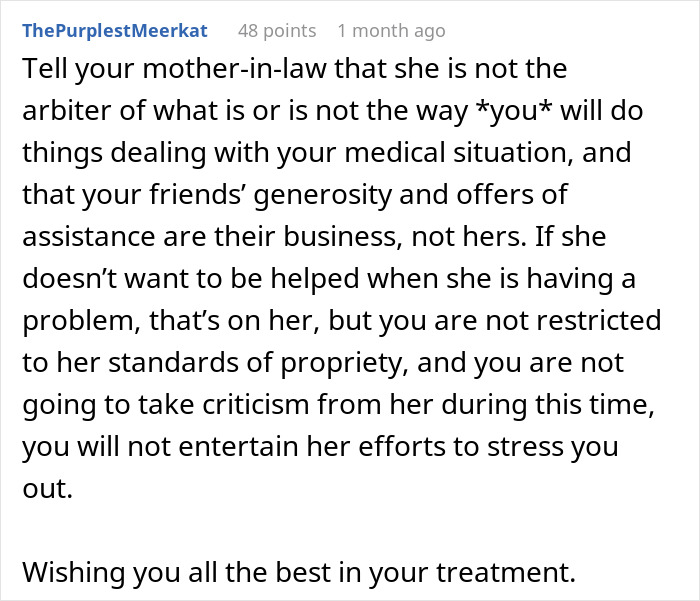
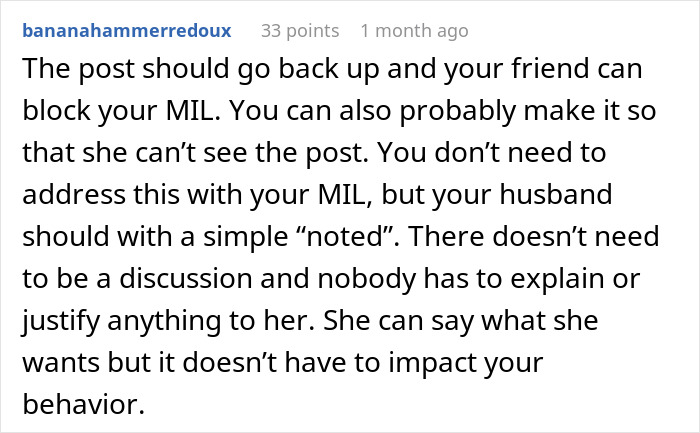

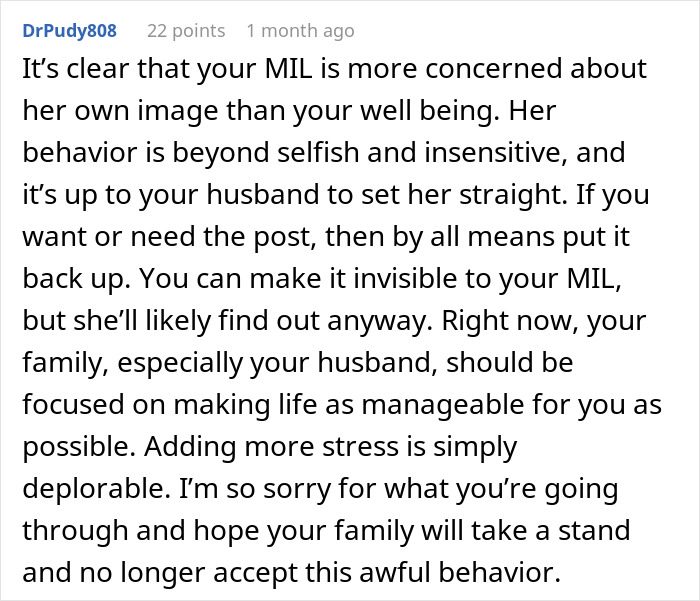
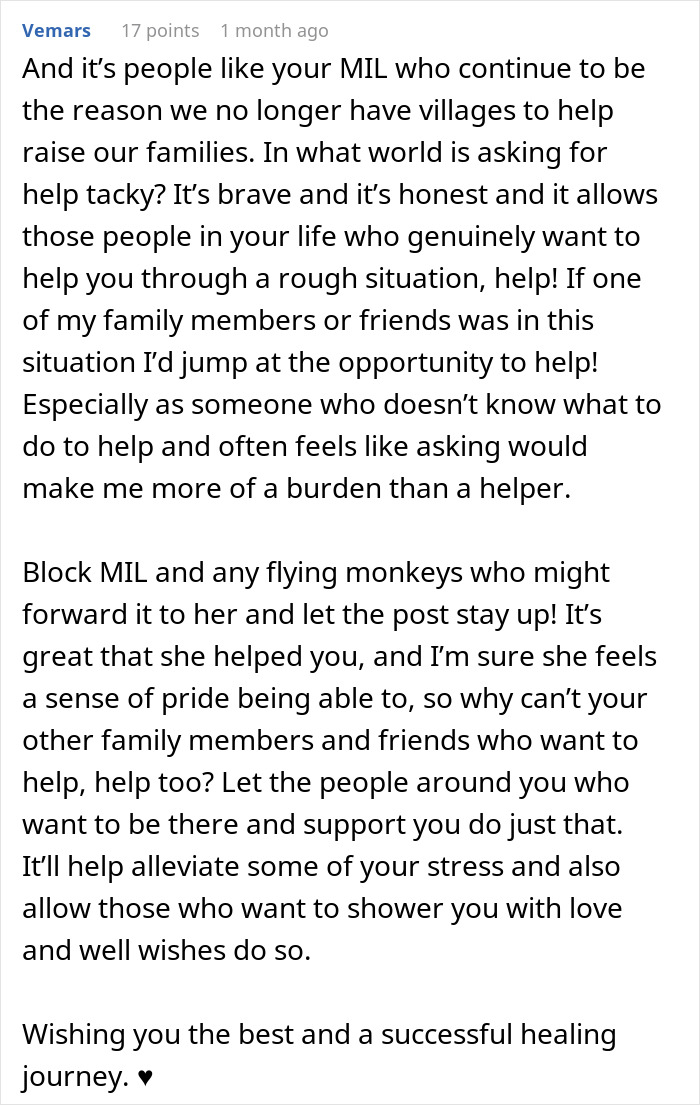
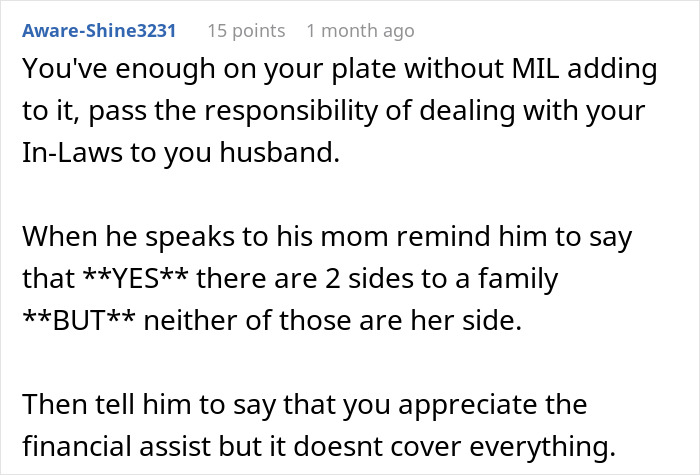
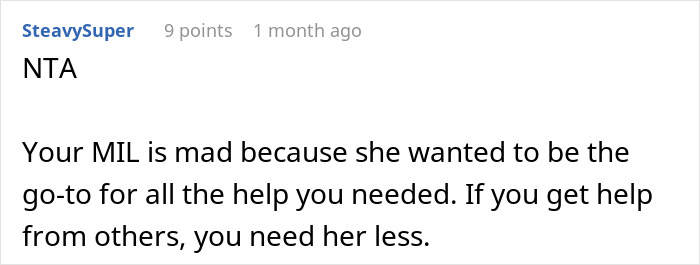

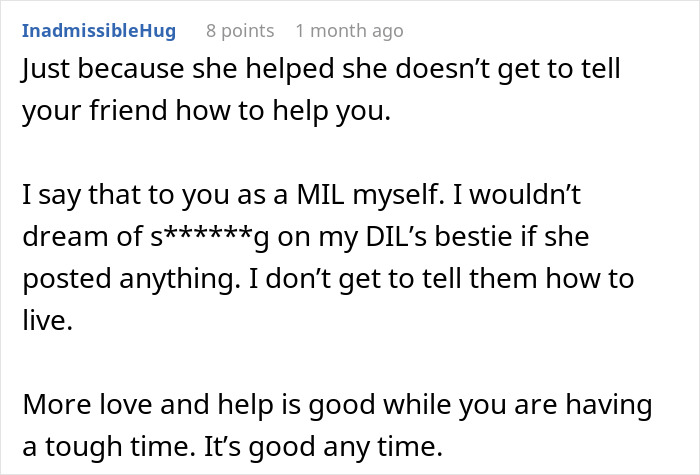
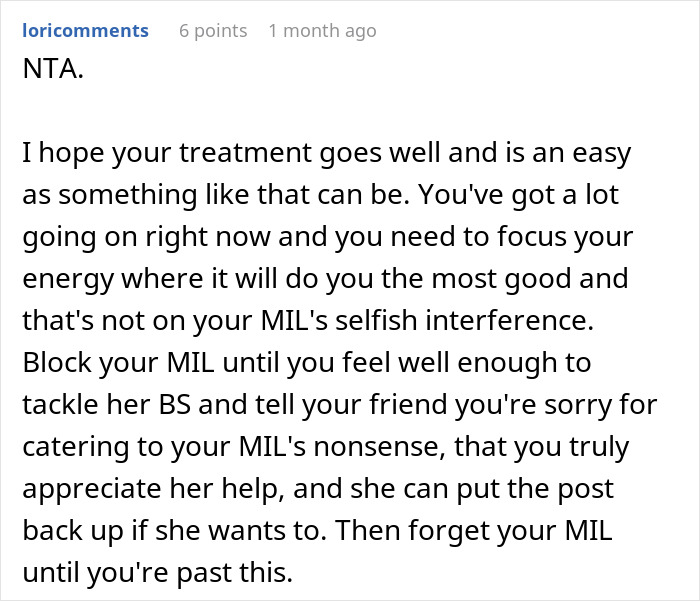
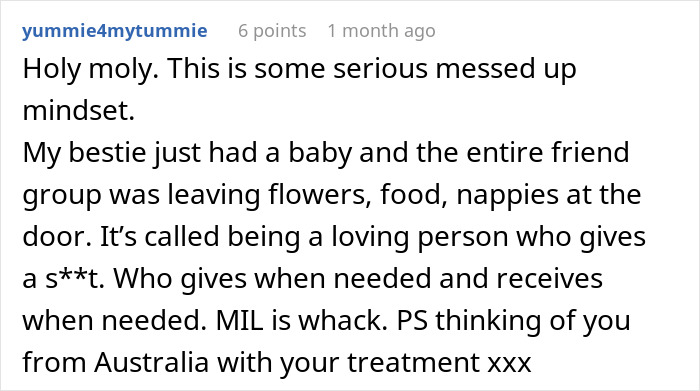
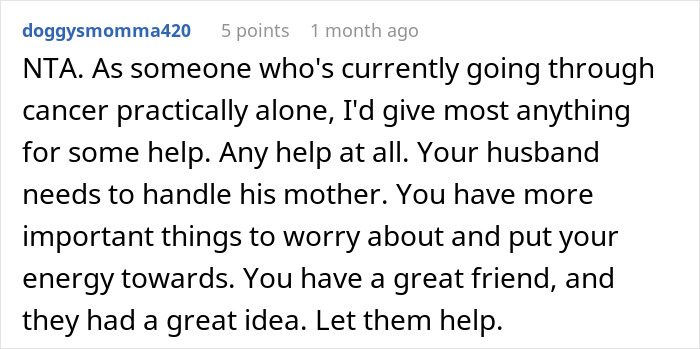


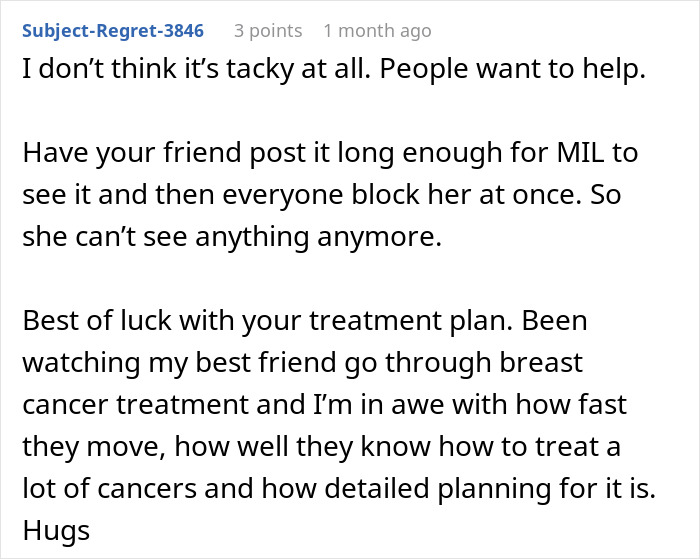
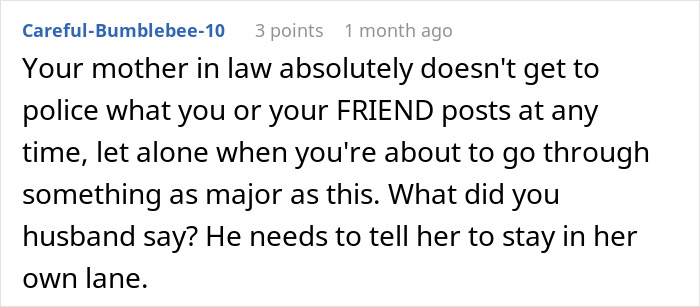
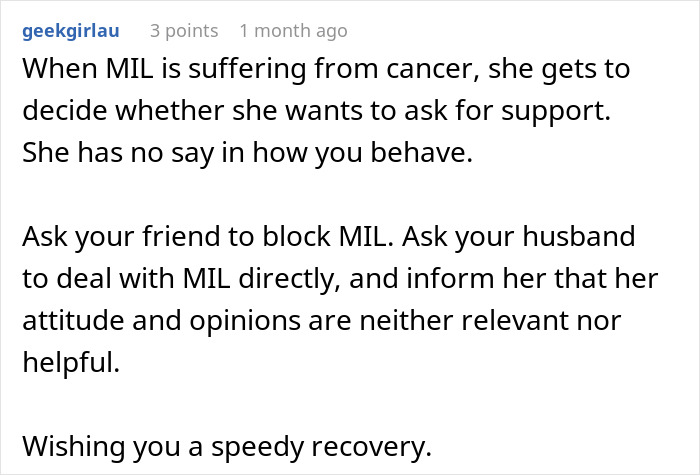
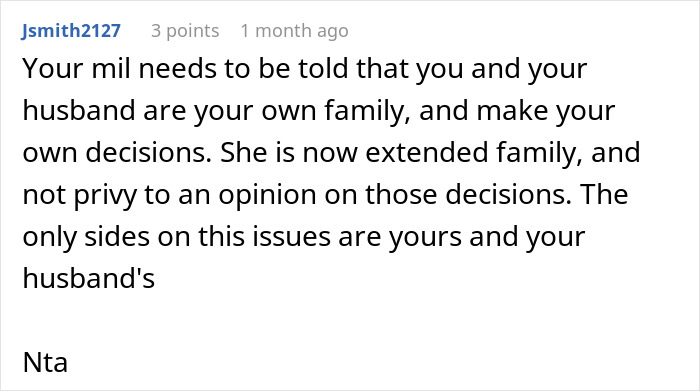
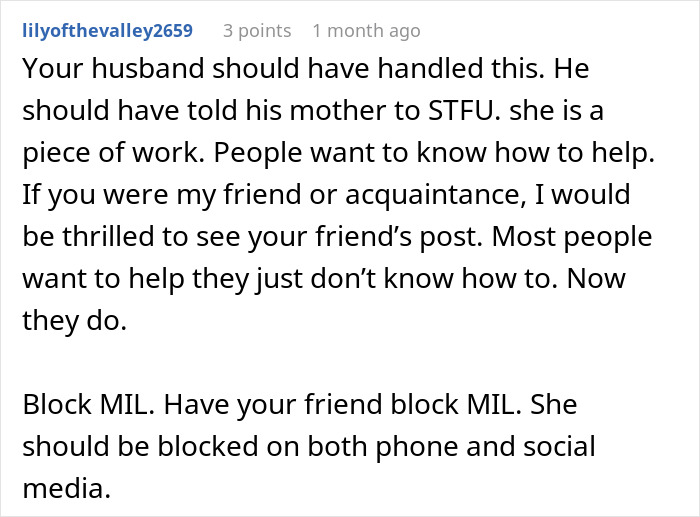
However, one person agreed with the MIL that the post was indeed tacky
